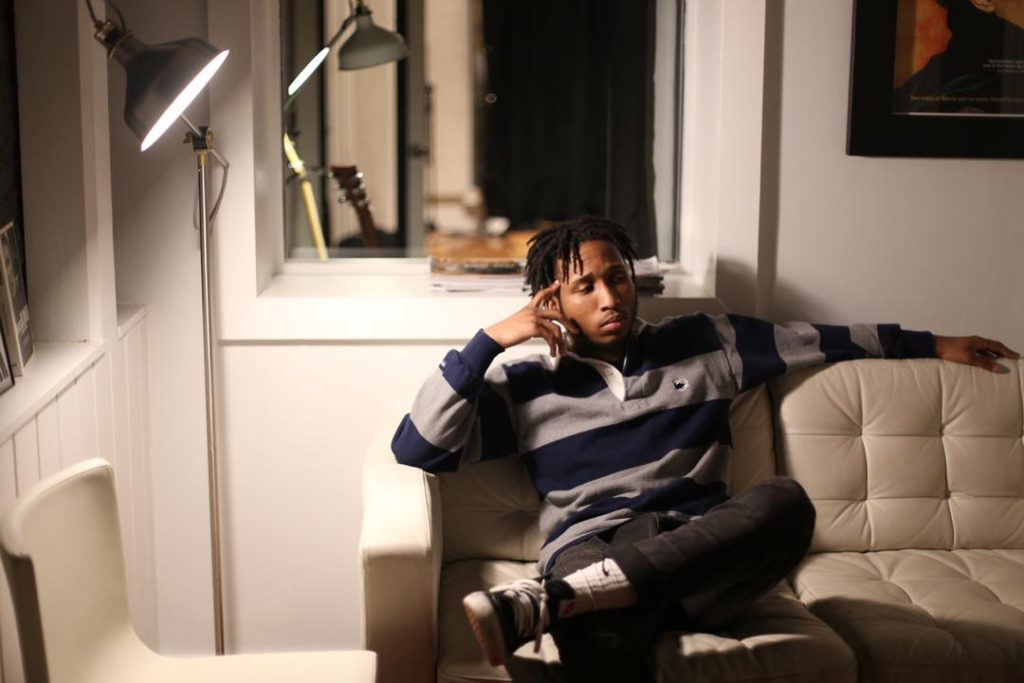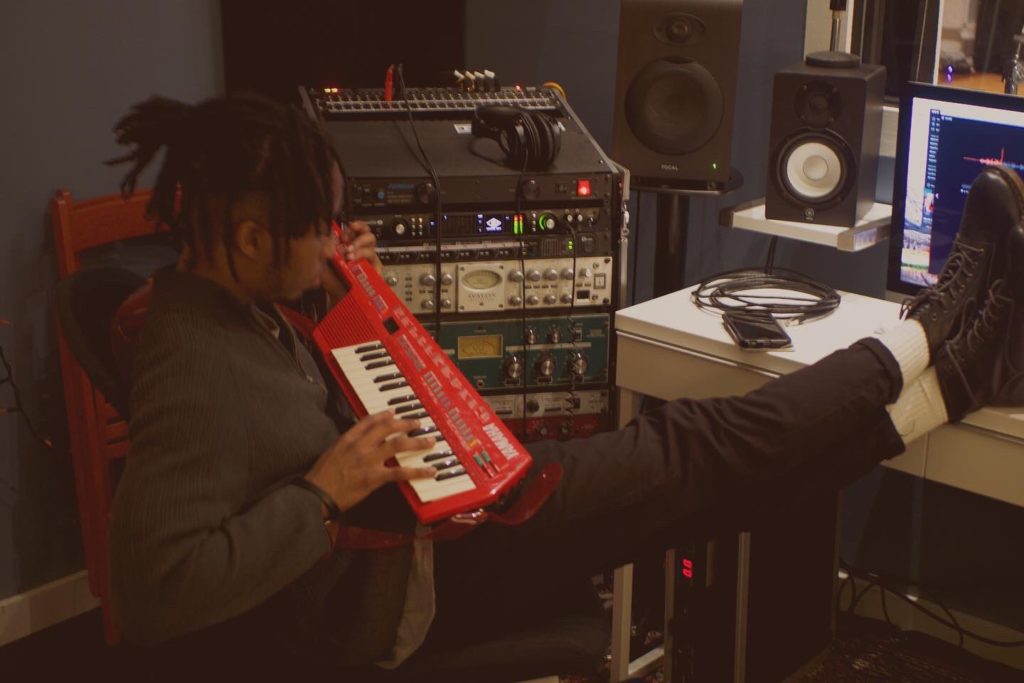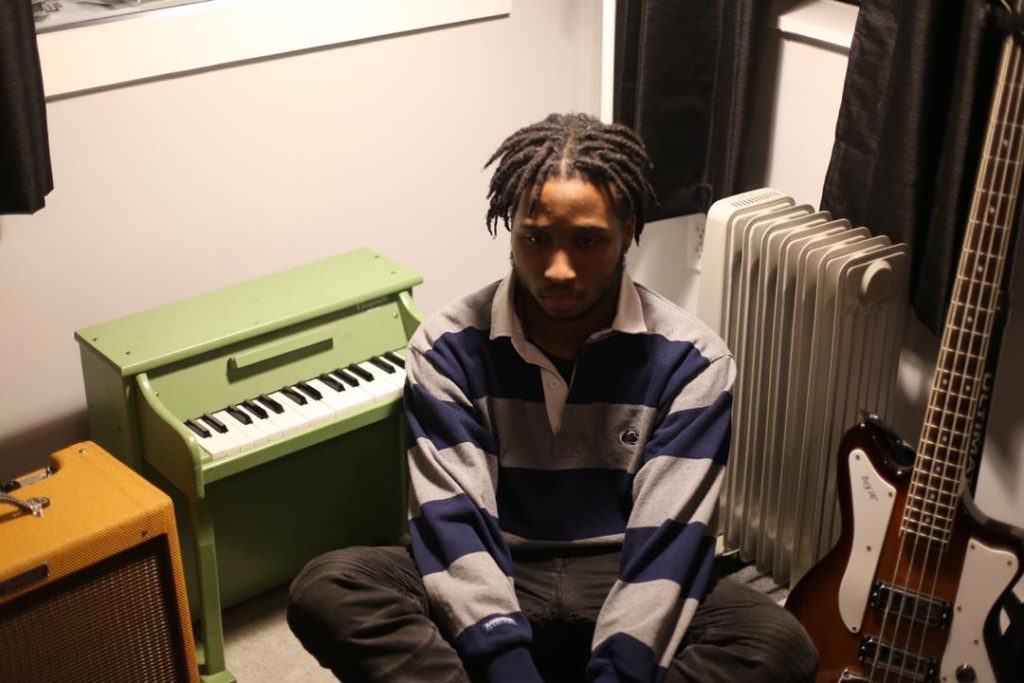
Denzel Oaks: The Missing Piece In Nigeria’s Hip-Hop Rebuild
SoundCloud’s increased prominence in Nigeria between 2015 and 2017 breathed new life into the youth and creative scene as a whole. Both artists and listeners alike fell in love with this platform, spending months honing their skills and allowing for an organic growth of their art and fanbase.
Lagos and Abuja are attributed as the most important hubs for the revolutionization of the New Gen scene. We are largely familiar with Odunsi (The Engine) and Santi being some of Lagos’ finest exports from the SoundCloud era. Abuja, on the other hand, was self-sustaining and brimming with life, birthing artists across genres ranging from hip-hop to nu-soul and alt-jazz, and everything in between. Lady Donli, AYLØ, and brothers Suté and Tay Iwar trace their origins to the capital; as well as hip-hop collective Apex Village which includes talented rappers PsychoYP and Zilla Oaks.
There is another artist, Denzel Oaks, who is the focus of this special edition of RADR Africa’s New School. He created buzz on the Abuja scene with his venomous delivery and metaphorical kick flips. Along the way, life happened, forcing a long term silence littered with inconsistent music releases. From the sidelines, he continued to study the growth of the New Gen sound in Nigeria, while having to deal with his fair share of human problems and learn valuable lessons. Now, he is ready to make the step back into the fold, bearing gifts of his creativity and delicate artistry for his prospective listeners.

We agreed to have the interview over FaceTime after our conversation on Twitter. “I’d be lying if I said I didn’t feel even a lil under appreciated [in Nigeria],” he said to me, “but I know what I have coming behind the scenes so I don’t let it bother me”. Denzel naturally carries an air of mystery about him, even worse now that he’s putting the finishing touches on his new project, called Zel. My phone rang at 6:54pm, and we got right into it.
On “Matches” you said, “I don’t rap to be cool, I don’t rap as a trend, I don’t rap just cause”. Why do you rap then?
I feel like we’re brought to this Earth to create; we come from a God who created everything, and we were made in that same image. We’re here to innovate and shape things.
Rightly so.
Exactly. That’s why I rap. I just want to create something that will last and stay relevant. It started off from poetry, and it naturally transitioned into rap.
A lot of conversations are happening right now on this new scene in Nigeria. Does it affect you that you seem to not be in these conversations?
Me not being part of the conversation is because it’s a business, and I totally understand that. Some people have better PR than others, and if you want to win a certain way, you have to play the game. But I know what I have in the tuck and I’m putting something out for the future.
You’re naturally an introvert. Do you think this affects the way you make your music?
The way I make my music? Nah. But, I would say it affects how I release my music, and how it’s perceived. It’s something I’m trying to fix.
You come across someone who is very, how’d I say it? Self aware.
Well yeah. I mean, I know there is the aspect of my nature and how I come in contact with the people I make music for. I always try to find a balance with it.
How did your decision to take music as your own path sit with your parents? It’s been a theme in some of your songs.
It was strenuous, not gonna lie. Took some time to really hammer it through to them. It took me down a very depressed route too, because it was tough having a dream that went against what the people I love wanted for me. There were a lot of arguments. I’m only just coming out the other end of that dynamic.
So they eventually gave in and decided to meet you halfway?
Yeah exactly. I think a lot of the youth nowadays struggle with this, because not everyone is lucky to have parents who understand them, and to even understand what their parents might want for them. Sure, they had the conception of “you’re a Nigerian kid, we don’t do that where we’re from”. But people fail to see that parents are human too, and everything that they do for us comes from a place of love. They just wanted what was best for me. I had to sacrifice some things, and they had to accept a lot too.
Now it’s all aligning.
Now it’s all aligning.
Would you say that is the sole reason behind your silence with the music?
I mean, it was a major part but it wasn’t the only part. I had other things I went through, I’d rather not share though. But yeah, all that time, I was still recording music. The music was very dark, like three or four times darker than what you hear on Treehouse. I wasn’t sure I wanted the world to hear that.
“Mind if I smoke?”, Denzel asked. Not like he needed any permission, but only out of sheer courtesy. He now lives in America, but he is still very much in touch with everything that happens over here. “I want to show in my music that I’m able to feel something. I’m a human being, so when I check the news and I see that Boko Haram is up to something or whatever else, that moves me, you know.”

How was it like growing up in Abuja?
It was okay. I went to maybe 4 schools, hated all of them, except for one. I’m not gonna mention their names because, y’know, no free clout. *laughs*
What was so special about that one school?
I think places feel better because of the people you meet. I met some really amazing people there. So it holds a lot of memories.
Is that where you started putting music out?
Well, not really. People really just knew me as the kid that rapped. So you can imagine how much rapping in school I did to be known as that everywhere I went.
You must have had a book of all your bars.
I lost a lot of my books of bars. I just kept writing more. You gotta keep writing more. I had like two or three songs people knew, but they weren’t so great.
How was it like growing up with a talented artist like PsychoYP?
I didn’t actually grow up with Psycho. At that time, I had already left Nigeria. My older brother Zilla was the one who really grew up with him. So during one of the summers I would come back to Nigeria, I met him. So it’d be me, Psycho and Zilla, we’d all chill at our friends house.
And that’s how you two started working?
Yeah. Back then, we’d all be at the studio somewhere in Maitama or Wuse 2, I can’t really remember right now. I’d sit in the corner, all silent. My brother would do all the talking because that’s just how he is. So going up there, I met AYLØ and Suté as well.
AYLØ and Suté are really talented artists.
Of course. AYLØ helped me understand how possible it is for things to sound better. Just with little offhand comments, he showed me how the vocals should sit in the mix, or how the mix should even sound. It’s stuff that I’ve kept with me throughout.
We’re really just one big community, bouncing off each other’s energy.
Exactly. So one day in the studio, AYLØ plays this beat, and it’s sick. Me and Zilla fought over who could have it for about thirty minutes.
He eventually let you have it?
Yeah, that beat eventually became the beat for “Woke Girls” off Treehouse.

Treehouse EP is an all encompassing kaleidoscope of everything you want from a hip-hop project. Ranging from the vibey high school kid anthem “Treehouse” to the dark and psychedelic ode to his parents “Daily Bread”, Denzel Oaks weaves his way through carefully selected beats, telling the stories that he wants to live on forever. Through all this, Denzel’s lyrics are characterized by one special trait: defiance. “The term ‘SoundCloud rapper’ was created to be derogatory. It’s meant to put you in a box, force you to limit yourself.” When asked about the state of rap in Nigeria, he said, “I think it’s great, people are trying new things. If I were to pick my favorites, I’d say Zilla Oaks, Suté and PsychoYP. Suté’s really a different nigga.”
Let’s get into Treehouse. It’s been three years since you dropped it now, and it’s a solid tape. How would you describe your mind state then?
Closed off. If you look at the artwork of Treehouse, you’d notice that there’s a little picket fence around it. The boy is secluded, and just in his own mind.
I never interpreted it like that.
It’s just symbolic of where I was at that time. If I were to make a Treehouse LP, which I am now thinking about, it would probably still be the same boy sitting under the treehouse, but without the picket fence, which would signify a more open mind.
What’s the biggest lesson you’ve learned these past three years?
Communication is important.
Going forward, it’s really about quality instead of quantity for Denzel Oaks. “I wanna build a fanbase that’s gonna fuck with the music, no matter what. Kendrick and [Childish] Gambino can go years without a project, and their fans would wait patiently for them. It exists. I always want to make a lasting artistic statement.”
Who are your influences?
With the way I arrange my bars and words, I’d say Jay-Z and Lil Wayne. But I listen to everything from Michael Jackson, to Tame Impala, to Erykah Badu.
What are Denzel Oak’s thoughts on the concept of “fitting in”?
With that, I think you always need to find a midpoint where you meet with your fans. I won’t lie and act like I wouldn’t care what the audience would think about the music that I put out, it all matters.
How would you relate that with breaking into the Nigerian market?
I wanna break into every market. I want the music that I make to be played in places like Belgium. *laughs*
You say Belgium as if it’s some distant place.
It’s not so distant, is it? I just want to be heard in places that people are not used to.
As a community, the youth in Nigeria are enjoying a prosperous time right now. It wasn’t always like this; previously having to endure ridicule from the old heads and naysayers who believed in everything that seemed “normal”, devoid of all forms of imagination and creativity. We are now ready to spread our wings to soar, and we have managed to successfully create a safe space within the mayhem for ourselves — a place which we can truly call home. Long live the New Age.
Follow RADR Africa and LOUDR Magazine on Twitter.
2 Comments
Comments are closed.
[…] In case you missed it, you can check out the RADR Africa’s New School special on Denzel Oaks here. […]
[…] Denzel Oaks: The Missing Piece In Nigeria’s Hip-Hop Rebuild […]